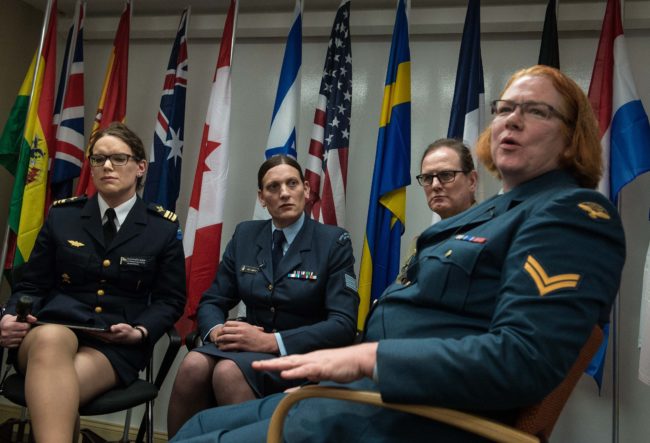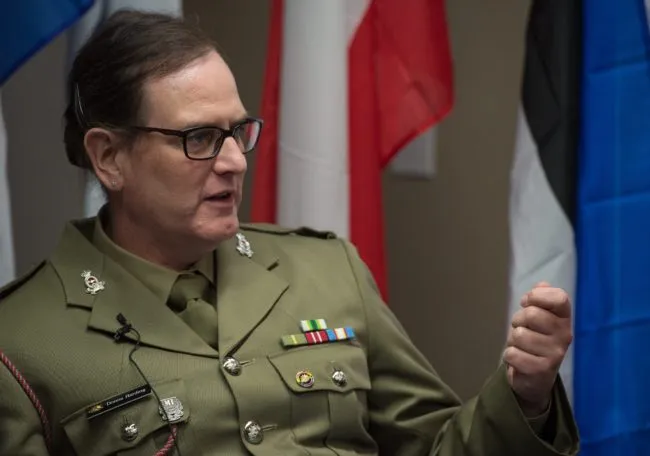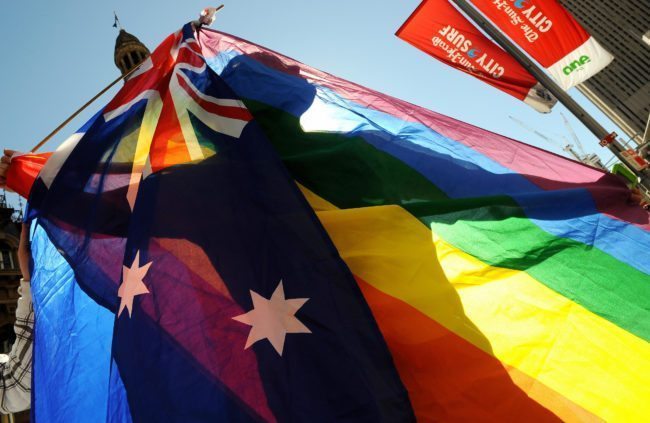Defence minister defends $1m spend on transgender military surgery

Australia’s Defence Minister has defended her country’s military spending of around AUD$1 million on surgery for transgender personnel over a five-year period.
Marise Payne has come under attack for the Australian Defence Force (ADF) spending the sum on 27 staff, who received treatment for gender dysphoria over half a decade.
While the sum may seem large at a glance, it needs to be understood in the context of defence spending.
In 2015-16, the ADF’s total health spend was $430 million, making the average sum spent on gender reassignment surgery per year around 0.0004% of the total.

Major Alexandra Larsson of the Swedish Armed Forces, Sergeant Lucy Jordan of the New Zealand Air Force and Major Donna Harding of the Royal Australian Army Nursing Corps listen to Corporal Natalie Murray of the Canadian Forces (NICHOLAS KAMM/AFP/Getty Images)
Total defence spending for the year was $31.9 billion, which means the sum spent on gender reassignment surgery was approximately 0.000006% of the defence budget.
Related: What the hell is going on with same-sex marriage in Australia?
“Gender dysphoria is managed in accordance with best practice clinical guidelines, under the same principles as any other health condition,” she Payne said in the Senate today
“So if a member of the ADF is diagnosed or treated for gender dysphoria, defence will fund the medical procedures or support as prescribed by the treating doctor.”
She was responding to questions from One Nation leader Pauline Hanson, who had argued that such surgeries were a “personal choice”.
Hanson added that such procedures “will not help in any way defending and protecting our country”.
Payne noted that if the defence force personnel were civilians, the procedures they’ve received would have been covered under their Medicare coverage
She added: “I think it’s invidious to try and distinguish between one health condition and one personal health circumstance over another.”

Major Donna Harding of the Australian Army Nursing Corps (NICHOLAS KAMM/AFP/Getty Images)
Meanwhile Andrew Hastie, a backbencher for the Liberal party, claimed to have quit his career in the SAS because of what he called army “social engineering”.
“I do not see how these surgeries enhance our war-fighting capability as a nation. It’s a bad joke. Why is the ADF now a vehicle for radical social engineering?” Hastie said.
“I repudiate the aggressive social engineering that has been taking place in the ADF, particularly in the army.”

A protester win a rainbow flag (TORSTEN BLACKWOOD/AFP/Getty Images)
The issue of transgender rights has become a dividing one in Australian society with the backdrop of the non-binding postal vote on same-sex marriage.
Australia accepted its first openly non-binary cadet, who does not identify as male or female, as recently as September of this year.
Instructors have been told not to use gendered terms for the cadet, but to use gender-neutral language instead.
Guidelines set up in 2013 have allowed the cadet to identify as ‘gender X’ instead of male or female.
However, only days later, it seemed as though the army may be looking for ways to abandon its gender-inclusive policies.
The junior minister for Defence Personnel reportedly instructed the department to find a way out the current protections that are in place for non-binary soldiers.

